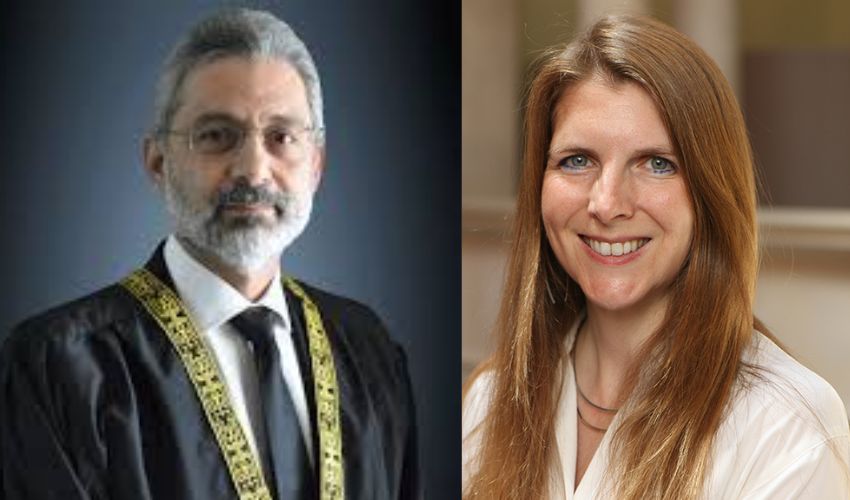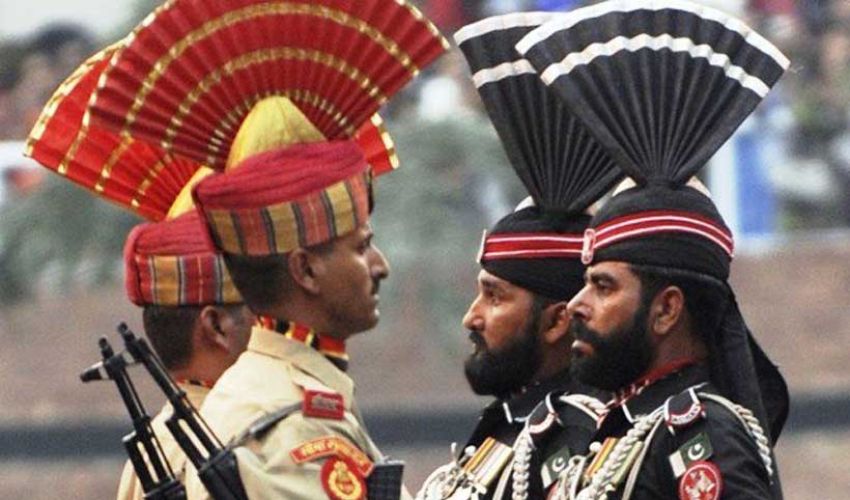The Supreme Court wrote a letter to High Commissioner of the United Kingdom to Pakistan Jane Marriott and reminded her of the colonial past mistakes of Britain before any lecture on open societies and democracy in Pakistan.
The letter reads, “It is heartening to note the interest shown by the British government, expressed in your Excellency's riveting speech at the Asma Jahangir Conference; underlining the importance of democracy, elections and the need for open societies."
Elections in Pakistan
Elections in Pakistan were required to be held within 90 days of the completion of the tenure of the National and provincial assemblies but had not taken place because the President and the Election Commission of Pakistan were at odds regarding who is empowered to announce the election date.
“The matter was resolved in just 12 days by the Supreme Court, and general elections were held throughout Pakistan on 8 February 2024; a copy of the decision is attached as 'A'.
“Previously, many wanting to contest elections in Pakistan faced a lifetime ban because they were not considered honest and trustworthy ('sadiq and 'ameen') by the Supreme Court. However, a larger 7- 7-member bench overruled the earlier decision, holding that it did not conform to the Constitution and the law; copy of the decision is attached as 'B'.
The law enacted by Parliament (Elections Act, 2017) requires democracy within political parties via the holding of periodical intra- party elections; to forestall autocracy, or even dictatorship within them.
To ensure compliance with this democratic principle the law stipulates that if a political party does not hold intra-party elections, then it would not be eligible for an election symbol.
A political party (which had itself voted in this law) did not hold the mandated intra- party elections. The Supreme Court reiterated what the law stipulated; copy of the decision is attached as 'C'. Therefore, your Excellency's criticism of this decision, with utmost respect, was unjustified.
It is worth mentioning that it was upon the current Chief Justice's assumption of office that cases of public importance began to be the first time in Pakistan's history. This allowed the public at large to view Supreme Court proceedings in their entirety, with transparency regarding how decisions came to be made. The decision regarding intra-party elections and party symbols was one of many to be broadcast live as such.
Importance of 'open societies'
“It was gratifying that your Excellency had repeatedly stressed the importance of 'open societies' which you stated are necessary for vibrant democracies. You will be pleased to learn that the Supreme Court has recognised the right to information and vigorously applied it to itself; copy of its decision is attached as 'D'.
Persisting in the violent undemocratic mistakes of the past condemns present and future generations, and perpetuates cycles of violence. Let us embrace truth, which sets us free.
Overthrow of Iran’s Mohammad Mossadegh in 1953
Should the overthrow of the elected democratic government of Mohammad Mossadegh in 1953, to capture Iranian oil, not be revealed after over seven decades of cover-up? Will this not prove therapeutic for the perpetrator and the victim? Will it not engender trust, possibly friendship, and peace?
Creation of Israel
Ceding to what it described as 'Jewish Zionist aspirations', the British government wrote to an individual, its own citizen, on 2 November 1917 conveying its decision to establish a settler-colonial state. This decision was not voted upon by the people of the area who were impacted by it, nor even by your own. The British government, and not Parliament, unilaterally decided it. The Balfour Declaration became the foundation on which an ethnic state was established. Those who had always lived there were excluded from this ethnic state; contained in ghettos, humiliated, deprived, brutalised, maimed and killed.
Settler-ethnic superiority
Let us step back from the precipice of settler-ethnic superiority. Deaths of thousands of children and many thousands more innocents may unjustifiably come to define a people, which would be an abomination. Let us all stand up and be counted for equality, peace and humanity.
Let us be honest and acknowledge past mistakes in the spirit of openness, advocated by your Excellency. And, jettison the unholy concept of ethnic superiority, and its concomitant - an inferior humanity.
Acknowledges past mistakes
Supreme Court of Pakistan has acknowledged the mistakes made in its past, addressed them in detail, and taken steps to ensure that they are not repeated.
Since the Government of His Majesty King Charles III has stressed the need for open societies and democracy, and offered criticism on the decisions of the Supreme Court of Pakistan, reciprocity would presumably be acceptable.
SC registrar said: “This letter is written on instructions of the Chief Justice of Pakistan, who extends to you and the people of your country his yearning for openness and democracy, and his best regards.”
It is pertinent to note that copies of the letter were also sent to the President of the Supreme Court of the United Kingdom Lord Robert John Reed and Lady Chief Justice of England and Wales Baroness Sue Lascelles Carr.



























